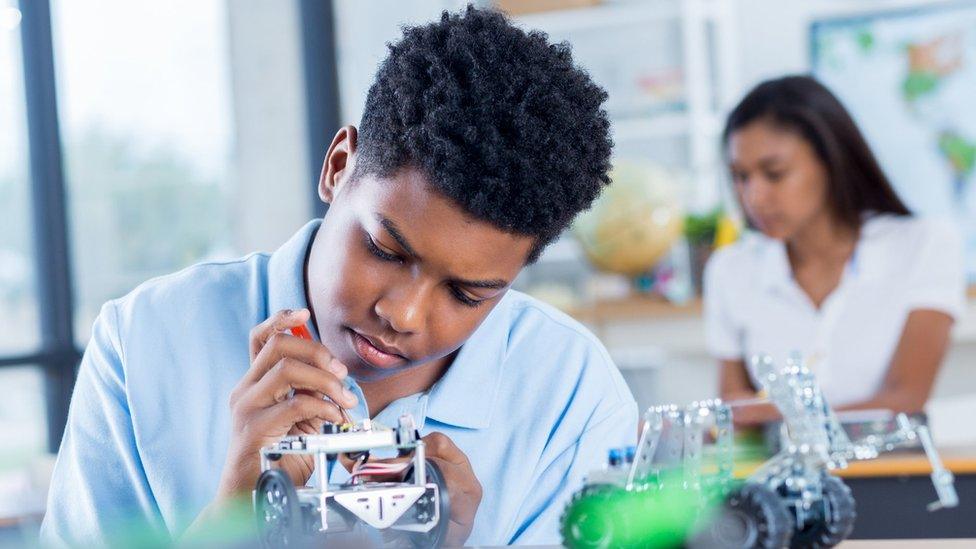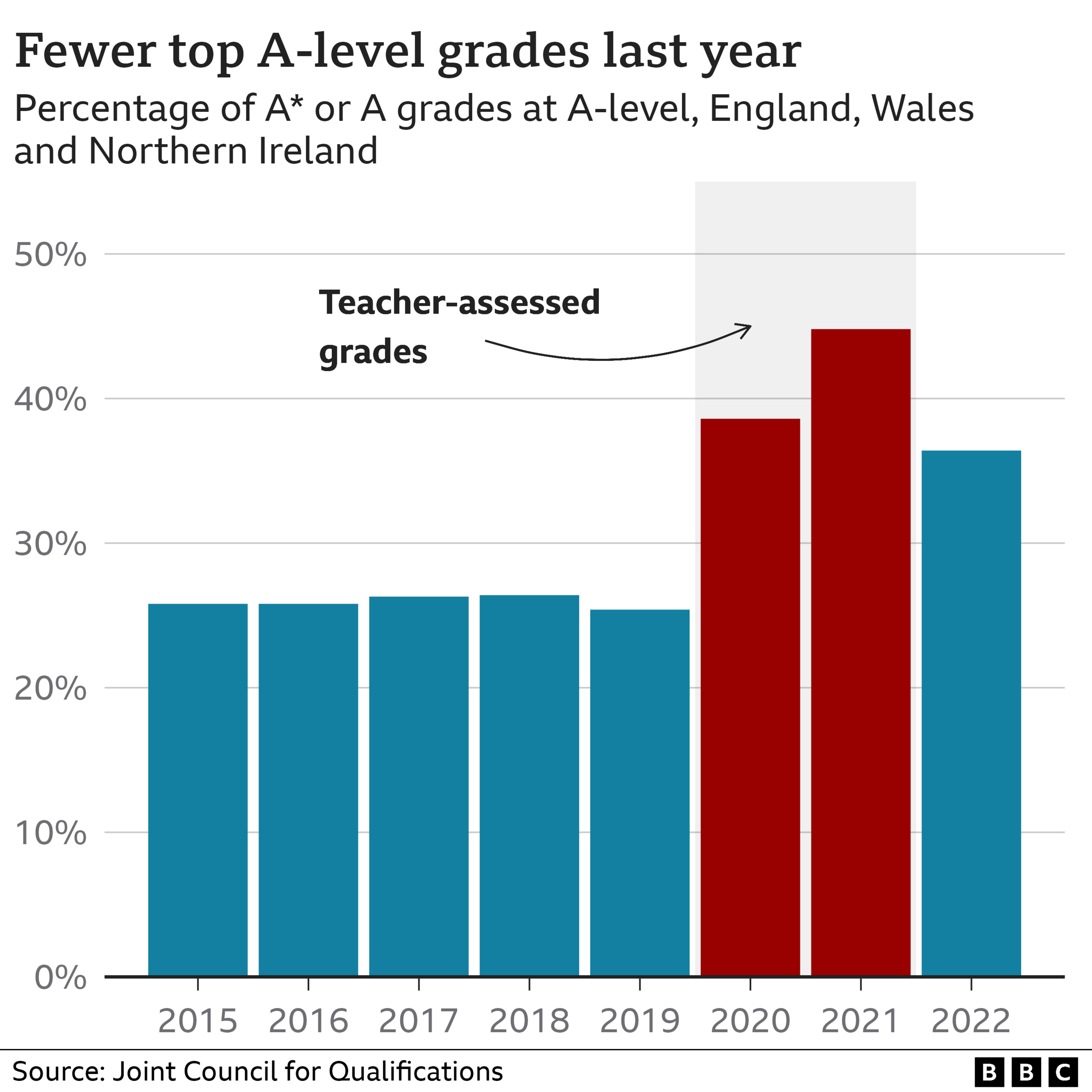Fewer BTec and Cambridge Technical pupils to face results delays this year
- Published

Fewer students taking vocational qualifications are expected to face delays to their results this year, England's exams regulator Ofqual says.
More than 20,500 students had to wait for BTec, Cambridge National and Cambridge Technical grades in 2022.
Some pupils told BBC News it meant they lost out on university places.
Ofqual's boss Jo Saxton said she expects the number of delays to be "significantly lower" - but not zero - this year.
The qualifications are all types of vocational technical qualification (VTQ). Level 3 VTQs are taken alongside or instead of A-levels, and Level 2 VTQs are taken alongside or instead of GCSEs.
Level 3 VTQ students will get their results on or before 17 August - which is also A-level results day. Level 2 students will receive theirs on or before GCSE results day, on 24 August.
Pearson, the awarding body responsible for BTecs, said some students are not currently eligible for a result because schools and colleges did not meet the submission deadline of 5 July.
As of 13 July,, external it said 2,881 Level 3 qualifications were ineligible for receiving a grade, but it hopes that number will be much lower by results day.
"We are giving those schools and colleges a wide range of support to urgently address challenges and help them to provide us with the information we need to award an overall grade for their students. This work will continue... until every outstanding case is resolved," a spokesperson said.
OCR, which manages Cambridge Nationals and Cambridge Technicals, said it was "on track" to release results on time to eligible students.
A spokesperson said it had worked closely with Ofqual, schools and colleges to introduce checkpoints to help avoid unexpected delays.
Pearson and OCR have both apologised directly to last year's students.
Reasons they gave for the 2022 delays included communication issues, as well as complexities resulting from adaptations brought in to help support students after disruption to education during the Covid pandemic.
Dr Saxton said reviewing what happened last year was "a step towards parity of treatment" between VTQ students and those taking GCSEs and A-levels.
Schools Minister Nick Gibb added: "We have done everything, the regulator has done everything they can to make sure that there aren't those delays [this year] because they were unacceptable last year."
Meanwhile, Mr Gibb said GCSE and A-level grades needed to drop back to pre-pandemic levels to ensure they carry "weight and credibility" with employers, universities and colleges.
Top grades hit record levels in 2020 and 2021, when results were based on teacher assessments instead of exams, which were cancelled because of the pandemic.
Grades dropped down in 2022, but were still higher than before the pandemic. They are expected to drop back to normal this year.

In an interview with the PA news agency, Mr Gibb said: "A typical student in 2019 - given the same level of ability, the same level of diligence - the likelihood is that same student would get the same grades in 2023 as they would have done in 2019."
However, grades will continue to have some protection.
Dr Saxton said that for England, grade protections had been "built in to reflect that performance is likely to be a little weaker, because of the disruption that students experienced".
This year, exams and grading mostly returned to what they were like pre-Covid, but there was still some support, which varied across the four UK nations.
Advance information on the focus of some exam questions was given to students in Northern Ireland, and some students in Wales, to help them revise. Exam regulators in both nations say they do not expect grades to return to pre-Covid levels until 2024.
In Scotland, some exams or elements of coursework were removed or reduced, and the Scottish Qualifications Authority plans to take "a sensitive approach" to grading this year.
In England, no advance information was released but there was some additional support - such as formulae and equation sheets in maths, physics, and combined science GCSE exams.
Mr Gibb said he expected such exam aids would not be offered to students in England next year, but that a final decision would be taken "in due course".

Our experts will be on hand to answer your questions on exam results days. What would you like to ask? You can email us at haveyoursay@bbc.co.uk, external.
Please include a contact number if you are willing to speak to a BBC journalist. You can also get in touch in the following ways:
WhatsApp: +44 7756 165803
Tweet: @BBC_HaveYourSay, external
Please read our terms & conditions and privacy policy
If you are reading this page and can't see the form you will need to visit the mobile version of the BBC website to submit your question or comment or you can email us at HaveYourSay@bbc.co.uk, external. Please include your name, age and location with any submission.
- Published15 December 2022

- Published23 August 2022
